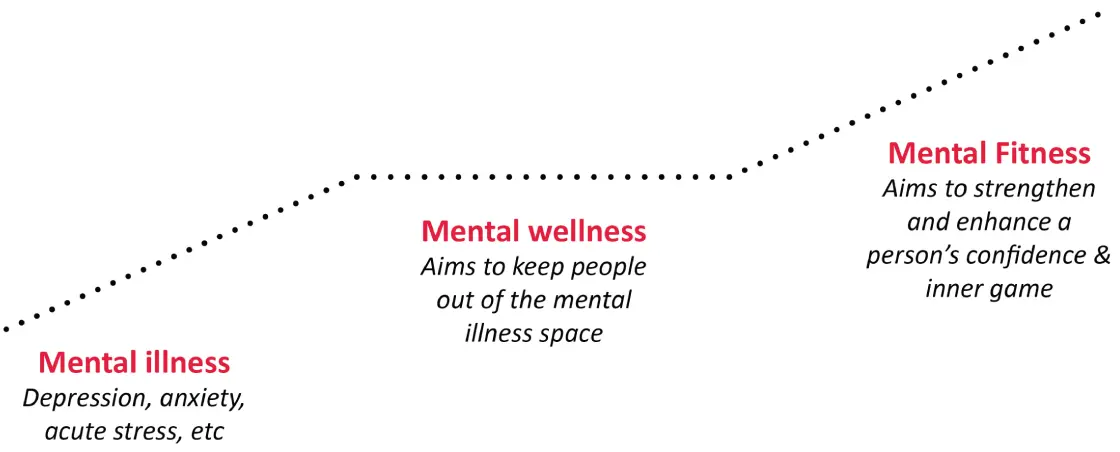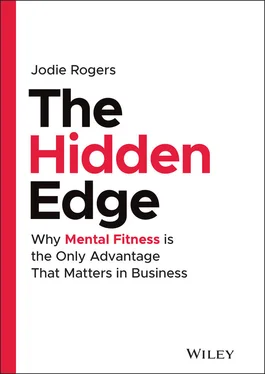But the truth is, the deadlines that can't be moved, the targets that can't be adjusted, and the ever-growing to-do lists are part of the stark reality that teams and business will be dealing with for the foreseeable future as we move into a faster-moving future and an increasingly unpredictable world.
So, while as leaders we may not have much control over deadlines and targets, what we DO have control over is how we can help our teams respond to and take on such gargantuan challenges.
And it's not just for times of heightened uncertainty like an economic crisis or a pandemic. The reality is that adaptability is one of the most important skills of the future. Actually, it always has been. As Charles Darwin pointed out, it's not the strongest species that survive but those most adaptable and responsive to change. That includes us humans, too.
Change used to take a long time to fully occur, certainly regarding how humans have lived on Earth. We were hunter-gatherers for several million years. We then moved to an agricultural way of life which lasted 12 000 years. The Industrial Age lasted only 100 years, and now we find ourselves in the Information Age, which has only been underway for a few decades, and several consultancies (including Deloitte and Boston Consulting Group) are already predicting the ‘future of work’, also known as the ‘Augmented Age’, could be upon us in less than 10 years.
The world and its workforce are changing at the fastest rate in history and will continue to do so. We therefore need to prepare our people to be agile in the face of that change. That requires mental flexibility, emotional regulation, self-awareness, and stress management, among a number of other competencies, which just aren't being prioritised enough.
In an increasingly complex and uncertain world, we all need tools to understand and manage our most important asset – our own minds – because it's our minds that act as our brakes and our accelerators. As we face into the new world, we need to consider how we respond to change. Rarely is change actually a problem; the problem is our natural human resistance to it.
We resist it because change breeds uncertainty, uncertainty brings doubt, which leads to hesitation and increases the risk of death – change and uncertainty generally have not been good for survival. Therefore, humans have been programmed to avoid them. But the world is different; we don't have the predators we used to, we can also navigate uncertainty and change more skilfully if we know how to acknowledge and live beside the anxiety and fear they often bring (knowing they most likely won't lead to death).
We need to be fine-tuning our minds to be more mentally agile and prepared for the long game. We need to be strengthening our neural pathways like we train our muscles at the gym. We need to be flexing our resiliency and preparing for the road ahead. We need to be getting our people mentally fit and empowering them to create their futures and that of the businesses and brands they represent. That's what this book sets out to support: empowering you and your people to enhance their own inner capabilities to navigate and flourish within a world of change. Because this is where true competitive advantage lives.
When I talk about mental fitness as a concept, I focus on strengthening and enhancing – as such it can be seen as preventative in approach.
In the 1970s the healthcare system in the UK published a variety of reports emphasising the importance of a preventative approach to health. In Spring 1976, the government published ‘Prevention and Health: Everybody's Business’, a discussion paper that outlined ‘a reassessment of public and personal health’. It argued that one potential solution to the problems then facing the National Health Service (NHS) was a shift from a curative service to one that promoted health instead. 2
While the idea of prevention wasn't completely new, it acquired a fresh urgency during this decade. Virginia Berridge notes that:
[b]y the 1970s, a new style of public health was emergent, both nationally within the UK and internationally as well … [which] stressed the role of individual prevention and responsibility for health, with its roots in the earlier 1950s epidemiological ‘paradigm shift’ epitomized by smoking and lung cancer. The concept of the ‘risk-avoiding individual’ replaced the mass vaccination campaign image of 1950s public health. 3
There was a realisation that, along with focusing on ridding the world of disease and illness, if society also spent energy and money on educating people to eat well, exercise, take vitamins, stop smoking, etc. they could keep millions out of the healthcare system and save billions, and many people would have a much richer quality of life. I believe passionately that we need to take the same attitude to mental health as we have done for physical health. We shouldn't focus all of our energy on just one side of the spectrum: illness. We should be investing in our own mental fitness and that of our teams – because that is where untapped potential lies (see Figure 1.1).

Figure 1.1The Mental Fitness Spectrum.
We've all heard of mental illness; it's a taboo topic, and if you're dealing with mental illness within your teams (like burnout, depression, or anxiety), you're working at the ‘cure’ phase. It's extremely important to support people needing help. This phase generally leads to focusing on problems and solutions, getting people back to a place of ‘wellness’, rather than strengthening and enhancing people's mental fitness.
Even when discussing mental health, people often still think of ill health, and many glaze over, thinking, ‘It doesn't apply to me, I don't have any problems.’ The tendency is to think a mental health session means they're going to be ‘assessed’, or worse, they're going to be encouraged to meditate! The issue with the term ‘mental health’ is that many believe they are fine as long as they are not ‘ill’.
The absence of illness does not equal health.
It's true that many companies have wellness or well-being teams, which largely focus on keeping people out of the ‘illness’ phase with some, but limited, focus on encouraging and enhancing ‘fitness’. We can expect preventative approaches in the form of encouraging exercise, healthy eating, sleep, and meditation. All of these are absolutely important, they are foundational – but I believe there's more, much more.
What's missing is a proactive approach to increasing and enhancing mental fitness that is interesting, engaging, practical, and applicable both in life and in business.
If you can educate, inspire, and empower employees to look after their own mental fitness, besides the well-being benefits, the impact on individual performance, engagement, employee retention, and the bottom line is untold. Well, in fact, we know the impact because we've measured it. In this book, we have given you both a business case for why this matters and how it impacts the bottom line. We've also created a case study (on Unilever, at the end of the book) so you can see what is possible when you bring mental fitness into your business.
This book, and my work, aim to make significant strides towards changing our perspective. I want to move away from focusing only on one side of the spectrum – illness (a cure-focused mentality) and wellness – to also putting energy into the other end of the spectrum – fitness (an enhancing, strengthening, and empowering mentality to growth). Just as we go to the gym to exercise, to strengthen our heart and our bodies to get physically fit, we want people to be putting the same effort into their mental fitness, upfront and early. It is this work that creates a resilient workforce, adaptable in the face of change, agile when dealing with uncertainty, and creative when solving challenges and inevitable setbacks.
Читать дальше













